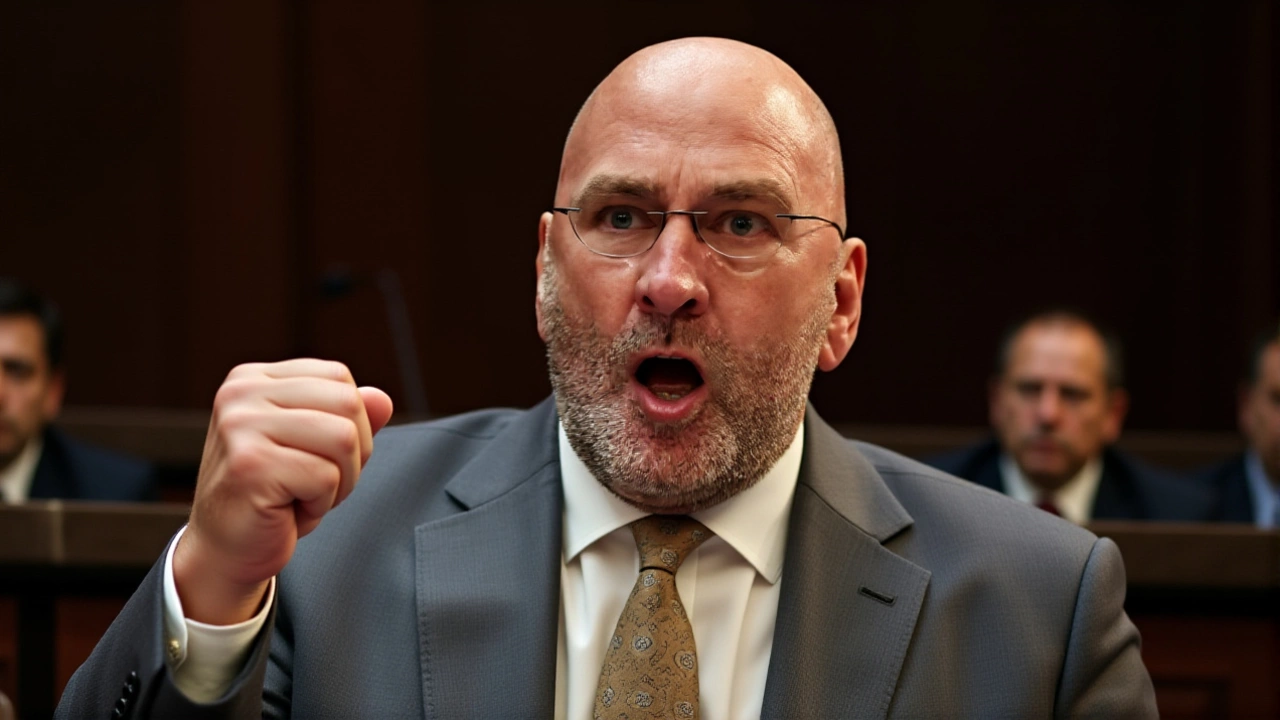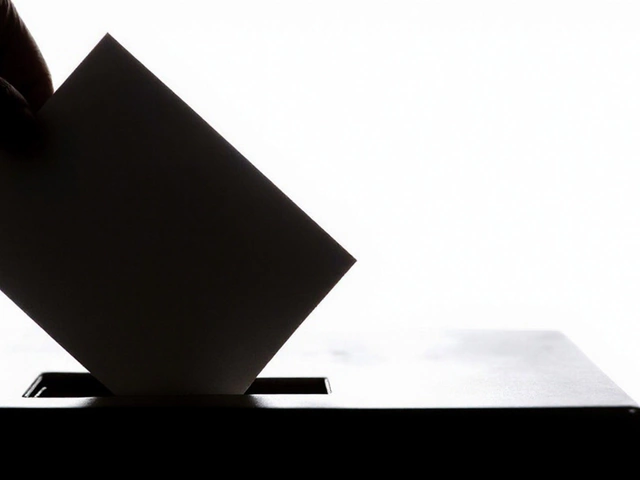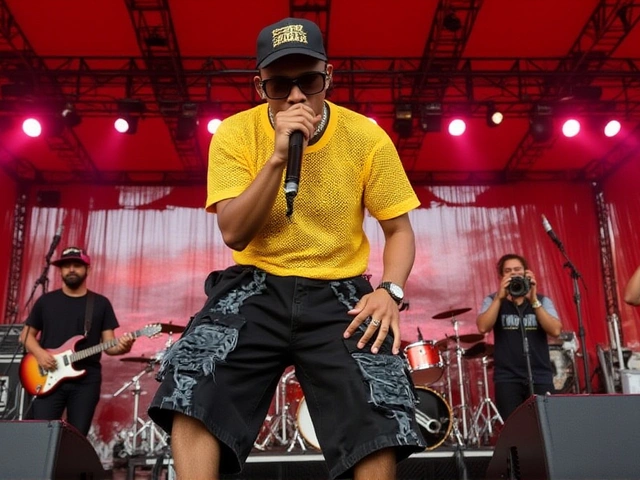When the U.S. House of Representatives voted 216-0 on Tuesday, November 18, 2025, to release decades of sealed documents tied to Jeffrey Epstein, the only Republican in the entire chamber to raise a hand against it was Clay Higgins—a 54-year-old congressman from Louisiana’s 3rd district. It wasn’t just a dissent. It was a solitary stand in a room where even the most skeptical conservatives fell in line. The bill, H.R. 7521, the Epstein Files Transparency Act, sailed through with near-unanimous support, backed by both parties and the White House. But Higgins didn’t just vote no—he posted a rambling, grammatically fractured message on X (formerly Twitter) that left even his allies scratching their heads. "I was wrong the bill months ago wrong today It abons years of criminal justice procedure in America," he wrote. The message, later clarified by aides as a rushed, unedited outburst, signaled a deeper unease: he fears the release of 15,000 pages could destroy lives that have nothing to do with Epstein’s crimes.
Why This Vote Wasn’t Just About Transparency
The Epstein Files Transparency Act wasn’t controversial because it demanded accountability. It was controversial because of what it might expose. The bill, which passed the Senate later that same evening in a unanimous voice vote, requires the U.S. Department of Justice to release all non-classified files related to Epstein’s sex trafficking ring by February 16, 2026. But it also gives the Attorney General, Merrick B. Garland, broad discretion to redact names—especially those of witnesses, alibi providers, and family members who never faced charges. That’s the catch. The bill’s authors, including House Judiciary Chair Jamie Raskin (D-Md.) and Ranking Member Jim Jordan (R-Ohio), insisted the safeguards were ironclad. But Higgins, a longtime law enforcement officer turned congressman, wasn’t convinced."You’re handing over thousands of names to the internet," Higgins told reporters after the vote. "A 17-year-old girl who gave a statement under duress? A hotel clerk who cleaned a room once? A cousin who drove Epstein to the airport? They don’t get a lawyer. They don’t get a hearing. They just get smeared." His concerns echoed those of the Epstein Accountability Project, a Palm Beach-based nonprofit that pushed for this bill—but also warned of collateral damage. The group’s executive director, Sarah Ransome, a survivor, said: "We want truth, not chaos. If we’re not careful, we’ll turn victims into villains and bystanders into suspects."
The Freedom Caucus and the Political Calculus
Higgins isn’t just any Republican. He’s a member of the House Freedom Caucus, the 40-member conservative bloc that’s spent years derailing bipartisan deals. Yet this time, every other member of the caucus voted yes. Even the most hardline members—like Marjorie Taylor Greene and Andy Biggs—supported the bill. Why? Because President Donald J. Trump asked them to.Trump, who had publicly called Epstein’s 2008 plea deal a "disgrace," used his Sunday morning Fox News appearance on November 16, 2025, to urge Republicans to "get this done before the midterms." He even hinted he’d use his executive power to declassify files himself if Congress stalled. The message was clear: support this bill, or risk being painted as protecting secrets. So 216 Republicans did. Only Higgins didn’t. And his reasoning wasn’t about loyalty to Trump—it was about loyalty to due process.
"I’ve seen how media mobs work," Higgins said during a rare floor speech. "They don’t care if someone’s innocent. They care if the name sounds suspicious. And once it’s out there, you can’t take it back."
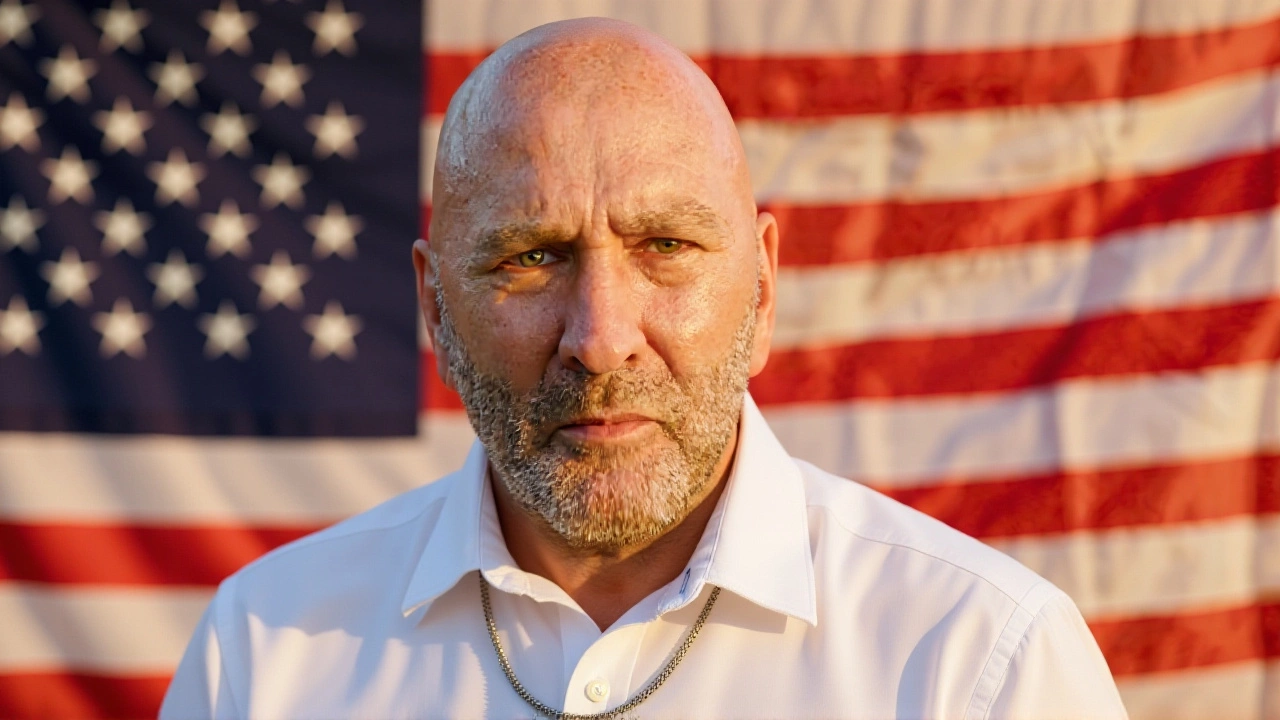
What Happens After the President Signs
President Trump is expected to sign the bill by November 28, 2025, as required under congressional rules. But the real work begins after that. The Department of Justice must process roughly 15,000 pages—emails, flight logs, bank records, and deposition transcripts—within 90 days. That’s a massive undertaking. The Congressional Budget Office estimates it will cost $3.2 million in fiscal year 2026, mostly for staffing the newly created Document Processing Unit at DOJ headquarters on Pennsylvania Avenue Northwest in Washington, D.C..But the legal fallout may be even bigger. Paul Rosenzweig, a professor at Georgetown University Law Center, predicts at least 50 civil lawsuits will emerge within six months of release. "People named in these files—even if they’re mentioned once in a footnote—can sue under the Privacy Act of 1974," he explained. "And if the DOJ redacts poorly, they’ll be on the hook for damages."
Why Higgins’ Stand Matters
This wasn’t a partisan issue. It wasn’t even really about Epstein. It was about the cost of transparency. For years, survivors have demanded answers. For years, the public has demanded justice. But Higgins asked a different question: At what cost?He’s not against accountability. He’s on the House Oversight Committee, which is still investigating Epstein’s network. He believes the committee’s ongoing work—where witnesses can be questioned under oath and names can be vetted—is the better path. "We’re not hiding anything," he told me. "We’re just doing it right."
And maybe that’s the real story here: In a world screaming for instant answers, Higgins is asking us to slow down. To protect the innocent as fiercely as we pursue the guilty. It’s a lonely position. But in a time when so many are willing to burn down institutions to find truth, his dissent feels less like obstruction—and more like a warning.
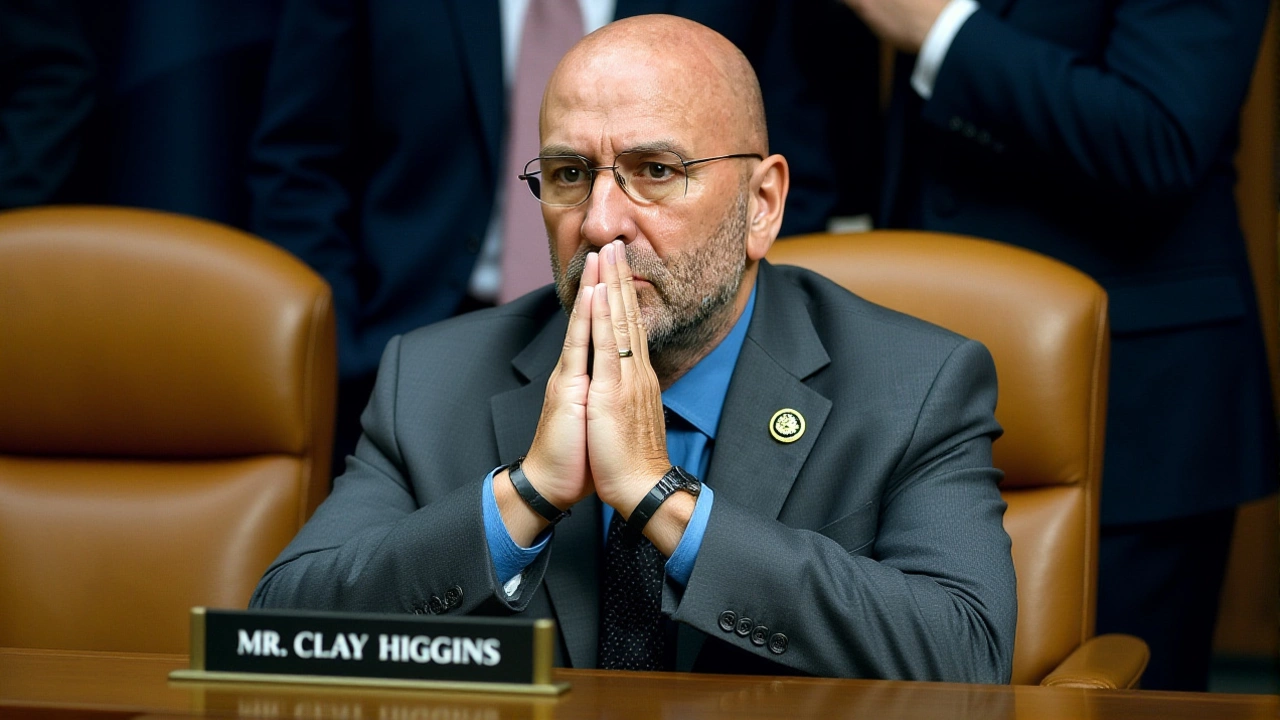
Background: The Epstein Timeline
- 2008: Epstein pleads guilty to state charges in Florida, serving 13 months in a county jail with work release.
- July 2019: Federal indictment unsealed in New York for sex trafficking of minors.
- August 10, 2019: Epstein found dead in his cell at the Metropolitan Correctional Center in New York City, ruled a suicide.
- 2020: The Epstein Accountability Project forms in Palm Beach, Florida, collecting over 250,000 petition signatures.
- November 16, 2025: President Trump urges GOP support for the bill.
- November 18, 2025: House passes H.R. 7521; Senate follows hours later.
Frequently Asked Questions
Why did Clay Higgins vote against a bill that most Republicans supported?
Higgins argued the bill’s broad language could expose innocent people—like witnesses, hotel staff, or family members—to public shaming without due process. He believes the ongoing House Oversight Committee investigation, which allows for vetted, controlled disclosures, is a safer path than mass document releases that could trigger civil lawsuits and reputational harm.
What’s stopping the Justice Department from releasing everything immediately?
The bill gives the Attorney General discretion to redact names under privacy and national security provisions. The Director of National Intelligence can also block releases indefinitely if classified material is involved. The DOJ must still review 15,000 pages manually, a process that could take months—even with a $3.2 million budget allocation.
Could this lead to lawsuits against the government?
Yes. Legal experts, including Georgetown’s Paul Rosenzweig, predict at least 50 civil lawsuits under the Privacy Act of 1974 if innocent individuals are wrongly named or inadequately redacted. The government could be liable for damages if it fails to protect personal information, even if the intent was transparency.
Why did the Senate vote unanimously while the House had one dissenting vote?
The Senate often uses voice votes for non-controversial bills, allowing members to avoid public record of dissent. In contrast, the House uses recorded votes, making Higgins’ opposition visible. His vote wasn’t unique in substance—it reflected a real concern—but it was unique in visibility.
What role did President Trump play in pushing this bill?
Trump publicly urged Republicans to support the bill on November 16, 2025, calling Epstein’s 2008 plea deal a "disgrace." He also confirmed he could unilaterally declassify files via executive order—but chose to let Congress act. His backing helped overcome resistance within the GOP, especially from the Freedom Caucus, which otherwise might have blocked the bill.
Will this finally reveal who else was involved in Epstein’s network?
Not necessarily. Many names may be redacted under privacy or national security grounds. The most sensitive documents—those involving foreign dignitaries or intelligence contacts—could remain sealed indefinitely. The bill ensures transparency, but not full disclosure. The real answers may still lie in the ongoing Oversight Committee investigations.
